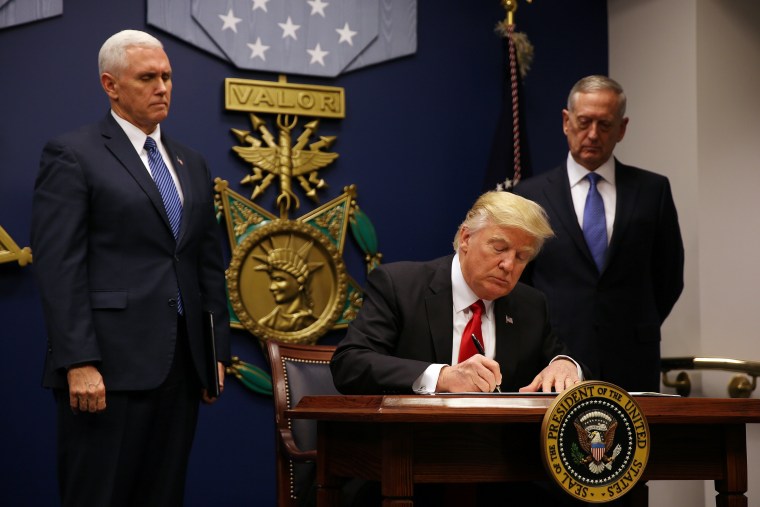Donald Trump's Muslim ban has struggled badly in the face of multiple legal challenges, and has already run into trouble in two separate appellate courts. But the Republican White House has some allies at the U.S. Supreme Court, who appear to be approaching the controversy from a different perspective.
The U.S. Supreme Court agreed Monday to reinstate much of President Donald Trump's travel ban before hearing the case this fall, dealing a partial victory to the administration in one of the most divisive policy battles of his presidency.The Supreme Court said the ban cannot be enforced for people from six nations -- Iran, Sudan, Syria, Libya, Somalia and Yemen -- who have relatives in the U.S. and want to travel to America.However, the ban can be enforced for refugees and those who do not have that personal relationship.
Note, this wasn't a ruling on the constitutionality of the administration's policy on the merits. Rather, the Supreme Court agreed this morning to hear the White House's appeal, and in the interim, the justices said parts of Trump's policy can be implemented. That's a break from the status quo: previous courts that have heard challenges to the policy did not allow the administration's ban to go into effect.
Justices Clarence Thomas, Samuel Alito, and Neil Gorsuch -- by most measures, the high court's three most conservative members -- said they wanted to go further, allowing all of Trump's policy to go into effect immediately.
Oral arguments in this case will be heard in the fall, but in the meantime, this policy will get a little tricky.
There's no reason to believe, for example, that Trump administration officials are in any way prepared to begin implementing the president's proposed Muslim ban -- or in this case, parts of it.
Complicating matters, shouldn't this quickly become a moot point? Trump's first executive order on the subject, issued in January, unraveled soon after. The second White House policy, unveiled in March, called for a 120-day ban on refugees and a 90-day ban on other visitors from the targeted countries. The point, Trump administration officials said, was to impose a temporary ban that would allow the relevant U.S. agencies to create new vetting and screening procedures.
In reality, the Trump administration hasn't done much to change Obama-era policies in this area in recent months, and by the time the Supreme Court hears oral arguments and issues a ruling, the White House will be well past its own deadlines.
Watch this space.
